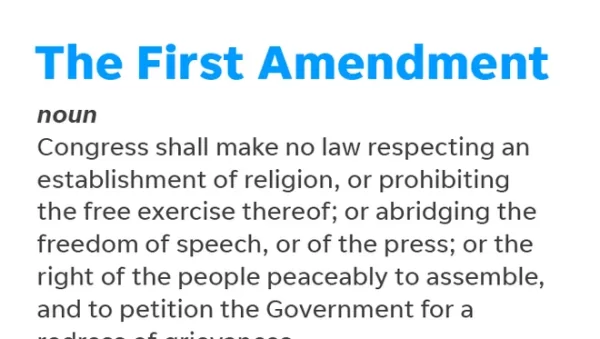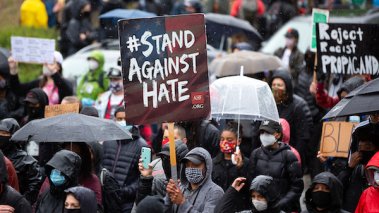In the United States, we are guaranteed the right to freedom of speech and freedom of the press and expression. But what should be the protocol for speech that is hateful and disturbing but does not present an imminent threat to the safety of a population? Should people be legally held accountable for their personal opinion that has not physically harmed anyone?
We should first look at what the First Amendment says regarding freedom of speech. “Congress shall make no law respecting an establishment of religion, or prohibiting the free exercise thereof, or abridging the freedom of speech, or of the press.”

This can be interpreted as vague or simply an open door that could swing either way. The amendment does not directly create guidelines for allowing or restricting speech; however, the courts have ruled that some forms of speech are not protected by the First Amendment which includes defamatory speech, false advertising, threats, and fighting words.
However, there are no restrictions set on hate speech, which the UN defines as “any kind of communication in speech, writing or behavior, that attacks or uses pejorative or discriminatory language with reference to a person or a group based on who they are, in other words, based on their religion, ethnicity, nationality, race, color, descent, gender or other identity factor.”
In 2017, the United States Supreme Court ruled that the Government has no right to discriminate against speech based on the speaker’s viewpoint, meaning that hate speech is protected by the First Amendment and is designated as free speech, therefore non punishable by law.

Since the speech harms no one physically the rights should theoretically be protected under the law. Now this is not to justify hate speech but rather to scrutinize its legality in the United States. Hate speech is morally wrong but in a free society, the right to freedom of speech should not be taken away for a country to be truly constitutionally abiding.
Hate speech, whether or not it is right or wrong, is a viewpoint which is not illegal. The clear distinction is intent after the speech is said. If the speech relays any credible threat then the speech becomes a crime and is not protected but if a speaker expresses a hateful remark without any following intent the speech is legal though morally wrong.
That said, hate speech of any form is terrible and should be acknowledged as such but like with any other opposing opinion you should not be arrested for it.






































